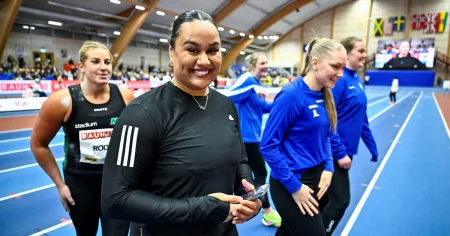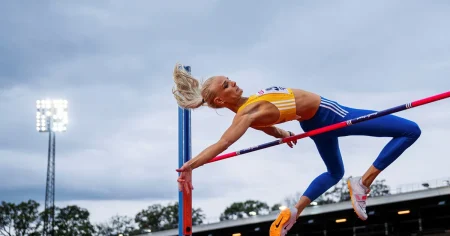Skellefteå AIK’s women’s hockey team, competing in the Swedish Women’s Hockey League (SDHL), has been handed a significant penalty by the Swedish Ice Hockey Association. A deduction of ten points from their current season’s tally has been imposed due to a violation of league regulations pertaining to the inclusion of "homegrown" players in their roster. This breach centers around the specific number of players developed within the club’s youth system that are required to be part of the active playing squad. The penalty, viewed by many as severe, has shaken the team and sparked a debate regarding the stringency of the rules and the implications of such sanctions. Skellefteå AIK now faces a challenging uphill battle to recover from this points deficit and maintain their competitive standing in the league.
The decision to penalize Skellefteå AIK highlights the league’s emphasis on fostering local talent and ensuring equitable competition within the SDHL. By mandating the inclusion of homegrown players, the league aims to encourage the development of young athletes within their respective club systems, strengthening the overall talent pool and contributing to the long-term growth of women’s hockey in Sweden. These regulations also seek to prevent teams from relying solely on recruiting established players from other clubs or countries, thereby creating a more balanced playing field and promoting opportunities for up-and-coming players.
However, the severity of the ten-point deduction has ignited discussions about the proportionality of the punishment. Some argue that while upholding the rules is essential, a ten-point deduction could be excessively detrimental to a team’s season, potentially hindering their chances of playoff contention or even survival in the league. This raises questions about whether alternative penalties, such as fines or player suspensions, might be more appropriate in addressing similar infractions. Furthermore, the case prompts a broader conversation about the challenges faced by smaller market teams in complying with such regulations, particularly in light of potential limitations in their youth development programs or player recruitment capabilities.
The Skellefteå AIK organization has expressed disappointment with the decision, emphasizing their commitment to developing young talent and contributing to the growth of women’s hockey. While acknowledging the importance of adhering to league regulations, they contend that the magnitude of the penalty is disproportionate to the infraction, placing them at a significant disadvantage. The club may choose to appeal the decision, seeking a reduction in the points deduction or an alternative form of penalty. The outcome of any appeal will be crucial for Skellefteå AIK’s prospects for the remainder of the season.
This situation underscores the complexities involved in regulating competitive sports leagues, particularly when balancing the need to enforce rules with the potential impact on individual teams and the overall competitive balance. The debate surrounding the Skellefteå AIK penalty reflects broader discussions within sports about the effectiveness of various disciplinary measures and the importance of finding solutions that both uphold the integrity of the game and promote fairness among competing teams.
Looking ahead, this incident could prompt a review of the SDHL’s regulations concerning homegrown players, potentially leading to adjustments in the rules themselves or the penalties associated with their violation. The league may explore alternative approaches to ensure compliance, such as providing support to teams facing challenges in developing young players or implementing a graduated system of penalties that takes into account the severity and context of each infraction. The Skellefteå AIK case serves as a valuable learning experience for the league and its member clubs, highlighting the ongoing need for dialogue and collaboration to maintain a healthy and competitive environment for women’s hockey in Sweden.














